How to Study Past Questions Effectively (My 5-Step Method for WAEC & JAMB)
How to Study Past Questions Effectively (My 5-Step Method for WAEC & JAMB)
Ever felt that panic?
You’re staring at a past question paper, and the answers just aren’t coming. You know you’ve read the textbook, but your mind feels blank. Or worse, you finish the paper, check the answers, and realize you failed woefully.
I get it. I’ve been there.
Here’s the truth most students get wrong: How to study past questions effectively isn’t about how many you can answer. It’s about how you review the ones you get wrong (and right).
Most students just “cram and pour.” They memorize answers, hoping the exact same questions will appear. That’s a quick way to fail.
In this post, I’ll show you the exact 5-step process I used to stop wasting my time and start using past questions to actually boost my scores.
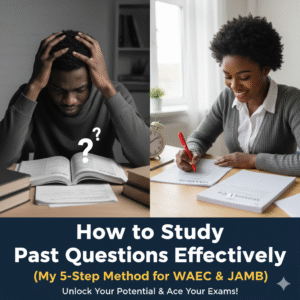
What’s the Wrong Way to Study Past Questions?
Before we get to the right way, let’s expose the bad habits. You’re probably making one of these mistakes right now.
I call this the “fake studying” loop:
- You open the past question booklet.
- You read a question.
- You guess the answer.
- You immediately check the back of the book for the answer.
- You say “Oh, okay” and move to the next one.
You feel productive, but your brain hasn’t done any real work. You haven’t learned why ‘B’ was the answer. You’re just practicing your “checking” skills, not your “thinking” skills.
This method fails because it gives you a false sense of confidence. The exam hall will be a rude shock.
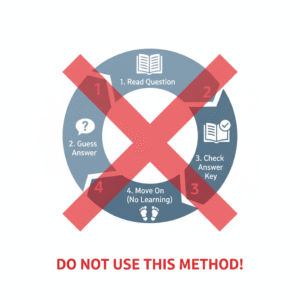
How to Study Past Questions Effectively (A Simple Step-by-Step Guide)
Ready for the real method? This is how you turn practice into high grades.
1. Get Your Materials (And Your Mind) Right
First, don’t just grab any past question. You need the official ones for your exam (WAEC, JAMB, Post-UTME) and, most importantly, the official syllabus.
Why the syllabus? Because it tells you which topics are still relevant. There’s no point studying a topic that WAEC removed five years ago.
2. Simulate Real Exam Conditions
This is the part everyone skips. Do not study your past questions on your bed.
- Sit at a proper table and chair.
- Put your textbook and phone in another room.
- Set a real timer. (e.g., If you have 60 questions in 1 hour, set your timer!)
This trains your brain to work under pressure. It’s a game-changer for your time management in the real exam hall.
3. Mark Yourself Brutally
Once the timer goes off, stop.
Now, take out a red pen and mark your work. Be honest. No “almost got it.” It’s either right or wrong. Get your score.
Feeling bad about a low score? Good. That’s the fuel you need for the next step.
4. This is the Real Work: Review and Understand
This is the most important step.
For every single question you got wrong, you must find out WHY.
- Was it a “silly mistake” (you misread the question)?
- Was it a “knowledge gap” (you genuinely didn’t know the topic)?
Now, open your textbook. Don’t just look for the answer. Read the entire topic section related to that question. If the question was on “Photosynthesis,” you must re-read that whole chapter.
Do this until you can explain to someone (or yourself) why the correct answer is right and why your answer was wrong.
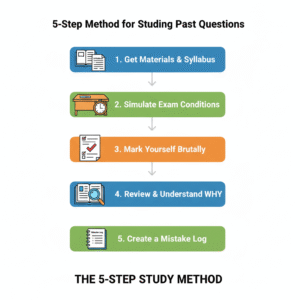
5. Create a “Mistake Log”
This sounds like “student-of-the-year” stuff, but it works.
Get a new exercise book. Any time you fail a question, write the question (or the topic) down in that book with the correct answer and a short explanation.
Before your next study session, you’ll spend 5 minutes reviewing this “Mistake Log.” This is how you stop making the same mistakes over and over.
Why This Actually Works (My Experience)
When I first started doing this, my scores were low. It was painful.
But after a week, something clicked. I started seeing patterns. JAMB, for example, loves to ask about the same concepts, they just change the wording. WAEC repeats topics in a predictable cycle.
This method works because it’s Active Recall. The “Testing Effect,” as researchers at places like Vanderbilt University call it, proves that testing yourself (and failing) is one of the most powerful ways to force information into your long-term memory.
It’s 100x more effective than just re-reading your textbook.
Common Mistakes That Make This Method Fail
Even with this plan, you can still mess it up. Avoid these traps:
- Using Your Phone: “I’m just using the calculator…” It’s a lie. That “quick” Instagram check will break your focus. Put the phone away.
- Not Using a Timer: If you don’t practice with time, you’ll panic and freeze in the exam hall. Speed is a skill you have to build.
- Only Studying One Year: Don’t just study 2023. You need to see patterns. I recommend using at least 5-10 different years.
- Studying “Tired”: If your brain is tired, you’re not learning. This method is hard work. Do it when you’re fresh (like in the morning), not at 1 AM.
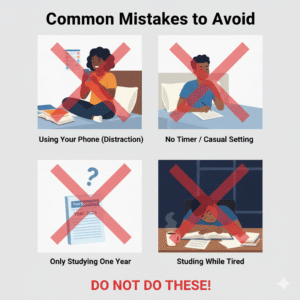
When Should You Avoid Past Questions? (The Honest Truth)
This method is powerful, but it’s not magic. And it’s not always the first thing you should do.
Here’s the honest truth: This method is not for everyone in every situation.
If you are just starting a subject and have literally read nothing, past questions might just scare you. You can’t be tested on knowledge you don’t have.
In this case, spend a week with your textbook and the syllabus first. Get a foundation. Understand the key concepts.
Past questions are not a replacement for your textbook; they are a tool to focus your revision.
Frequently Asked Questions (FAQs)
H2: Frequently Asked Questions (FAQs)
1. What’s better, past questions or my textbook? Both. Use your textbook to learn the material first. Use past questions to test your knowledge, find your weak spots, and learn how the examiners ask questions.
2. How many years of past questions should I study for WAEC/JAMB? I recommend at least 5-10 years. This gives you a great idea of topic trends, question styles, and how often certain concepts are repeated.
3. What if I keep failing the practice tests? That’s good. Seriously. It means you’re finding your weaknesses. Every failure is a signpost pointing to exactly what you need to study. Go back to your textbook, review your “Mistake Log,” and try again.
4. Can I just memorize all the answers? Please don’t. It’s a huge waste of time. Examiners are smart; they will rephrase the question, and you’ll be stuck. Focus on understanding the concept behind the answer.
5. Where can I get official past questions? Your school’s bookshop is a good start. For WAEC, you can also check their official WAEC e-Learning Portal, which has resources. Be careful with random apps and websites, as they can have errors.
My Final Thoughts
Look, there’s no “secret” to passing exams.
But learning how to study past questions effectively is one of the best ways I’ve found to walk into that exam hall with confidence.
It’s not about being a genius. It’s about having a smart process. Stop “cramming.” Start “simulating” and “reviewing.” It’s harder, yes, but it’s the only method that actually works.
What’s your biggest challenge with past questions? Are you going to try this method? Let me know in the comments.

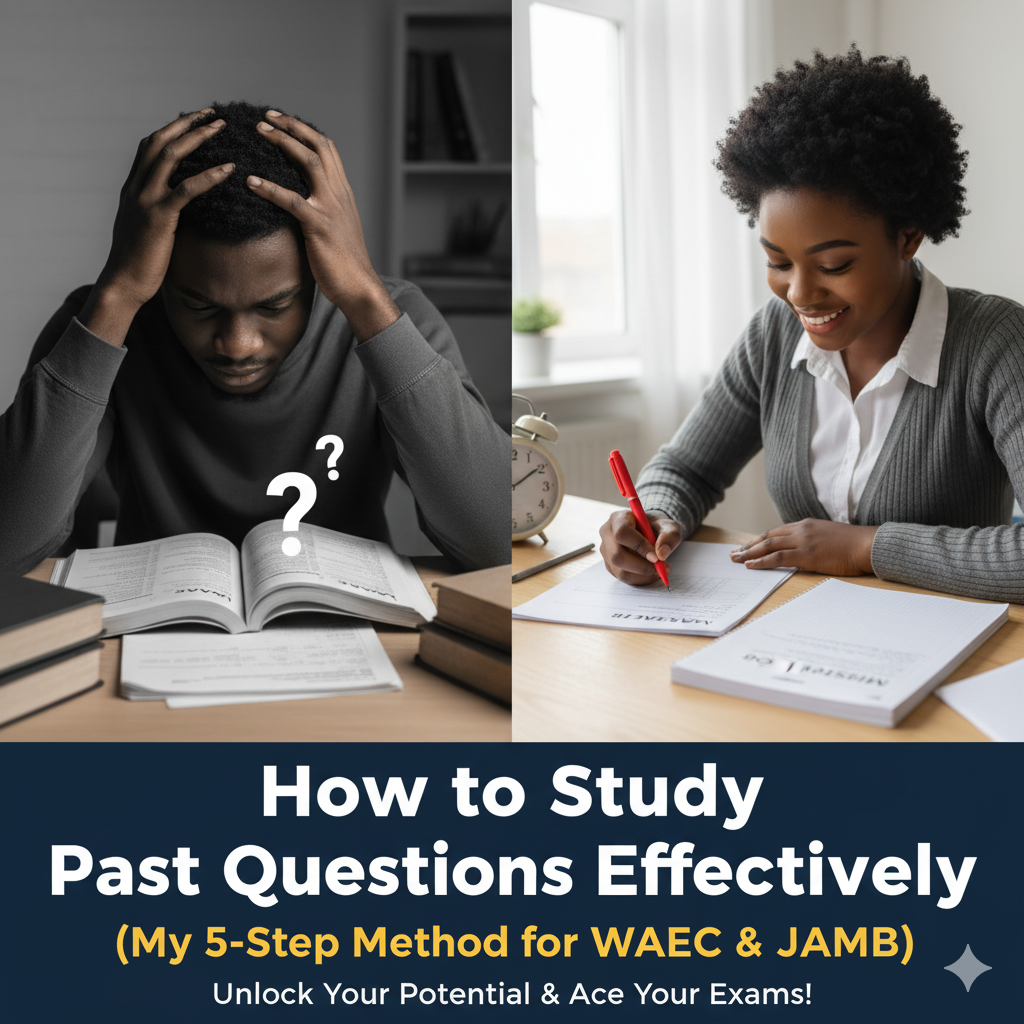

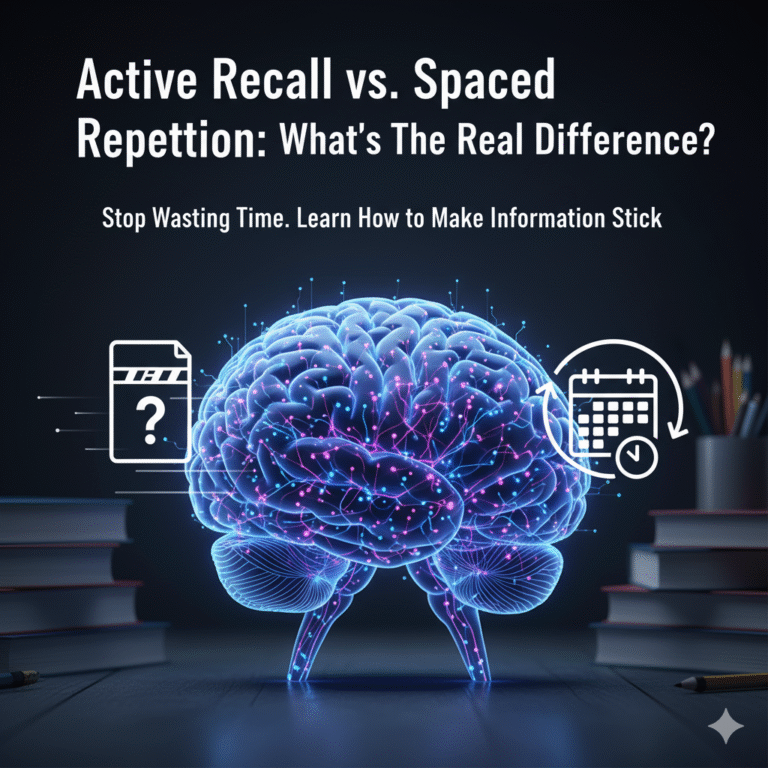
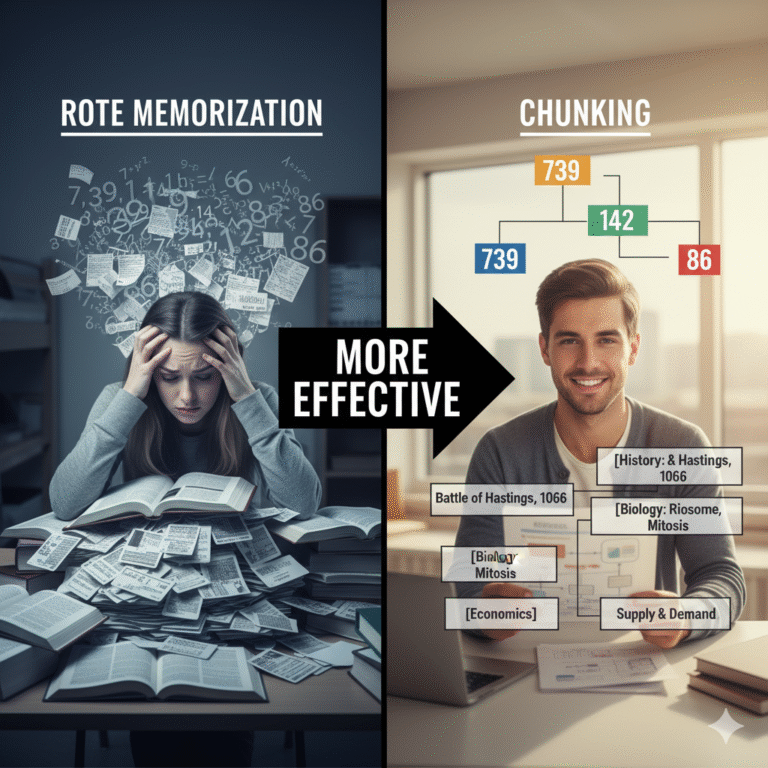
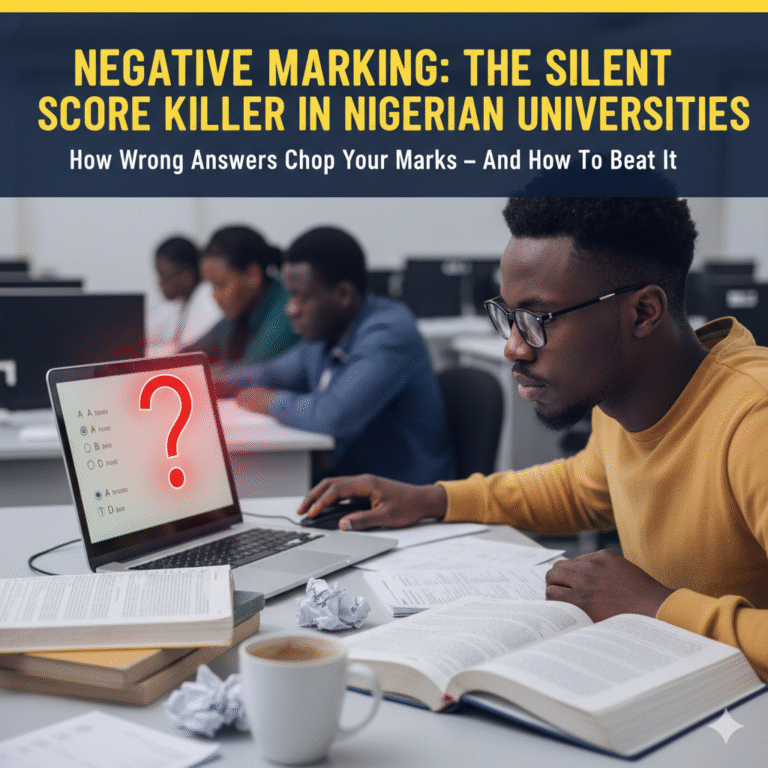
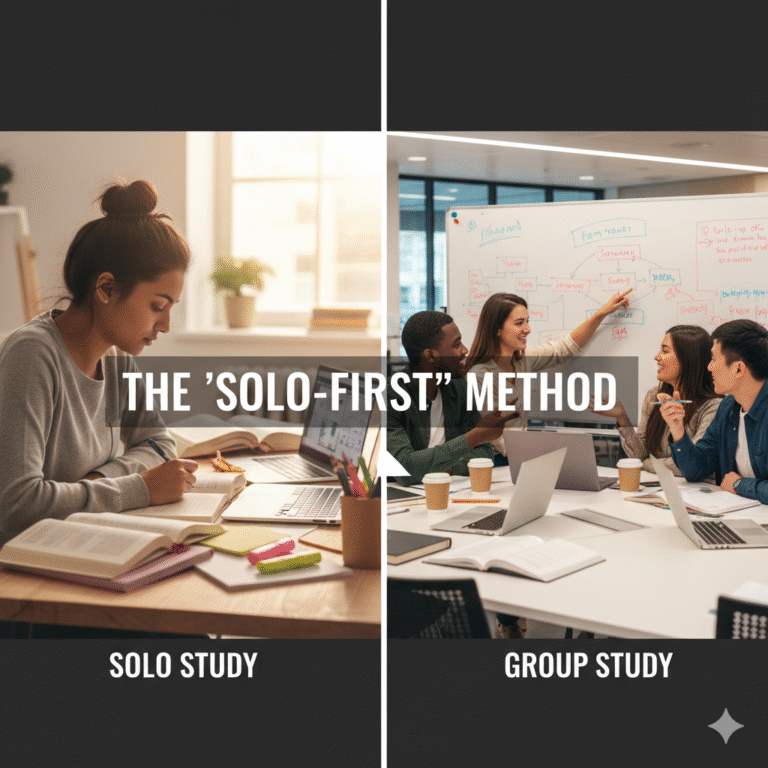

One Comment